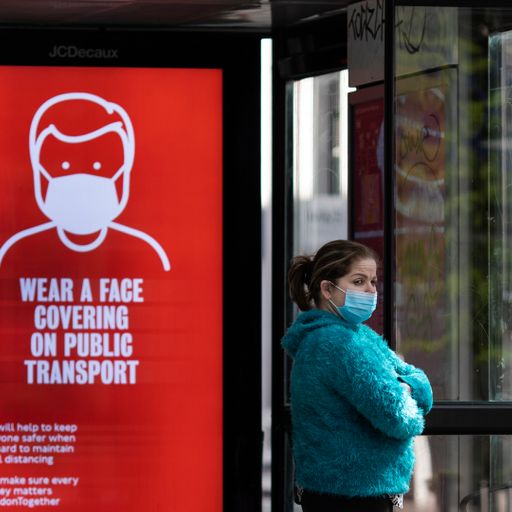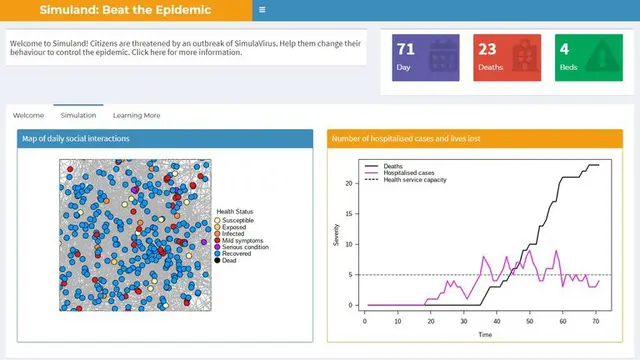Scientists at the University of Exeter have created an online simulation which will help people understand how individual actions impact the spread of diseases.
Simuland: Beat the Epidemic is a browser-based
COVID-19
game where users can change public behaviour to see how that behaviour impacts transmissions.
Different behaviours can correspond to different real-world actions, although the simulation's algorithms are much more obedient than the population at large.

Coronavirus tracker: how many cases are in your area?
Users can decide how much contact people have reflecting the impact of social distancing measures, and also change the levels of personal hygiene in the population.
The simulation isn't graphically complicated, it simply shows dots traversing a square box, but it is intended to be an educational tool to explain how different factors impact transmissions.
"People are being told to make various behaviour changes - from social distancing to extra hand washing - and many might be struggling to understand why," explained Professor Dave Hodgson, of the University of Exeter.
"Simuland is intended to show people the link between population-level behaviour and the spread of disease.
"By adjusting the web app's controls and watching the results, people can see the impact of human behaviour on a simulated 'SimulaVirus' outbreak."
The simulation is free and available online alongside lesson plans with different resources for home-schooling, schools and universities.
"When the COVID-19 pandemic began, we thought about what we could do," said Professor Hodgson, director of the Centre for Ecology and Conservation at Exeter's Penryn Campus in Cornwall.
"Members of our research group study wildlife diseases, population biology and social networks.
"The public are now hearing a lot on the news about scientific concepts like infection rates and herd immunity.
**:: Listen to the Daily podcast on **
Apple Podcasts
**, Google Podcasts
, Spotify
, Spreaker
**
"Our simulation brings these concepts together in a simple model of a society of 500 people.
"Using the simulation, people can learn how one public action usually won't be enough - they have to be used in combination."
The simulations collect no personal information from participants, but the researchers will be able to analyse the outcomes of various approaches on the spread of the virus, and the choices people make when taking part.
 简体中文
简体中文

